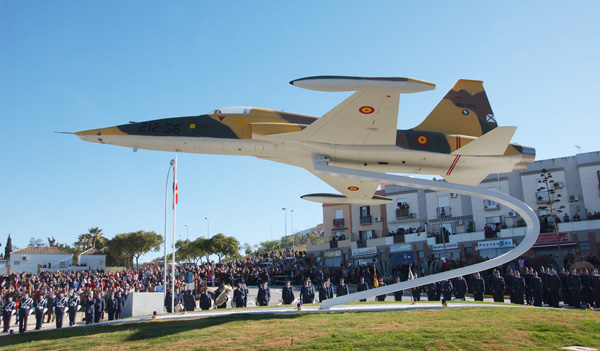
Spain, essentially because of its geographical positions and its good relations, has become an essential element for the projection of US military power in the present day. It is no longer merely a flank, as in the days of the Cold War, nor a rear-guard area, but a major front-line base. Rota, whose importance was ramped up by the previous Spanish government, and with a now revitalised Morón Air Base provide the US with a logistics platform for the South and East that is more important than anything any other country can contribute, while it is also in Spain’s interest. But this needs to be explained in depth to a society totally lacking in a culture of security. And it is not only the government that needs to offer explanations, so a single debate in Parliament to ratify the amendment to the Defence Agreement is clearly insufficient.
The scant publicity given to the issue is clearly a very poor start. On behalf of the main opposition party, the PSOE, the Secretary General of the Socialist Parliamentary Group, Miguel Ángel Heredia, has affirmed that his party will only support the agreement if there is a ‘specific commitment’ to boosting local employment on the basis of the new investments and maintenance necessary to cater for the permanent deployment of up to 2,200 Marines and 500 civilians –which could rise to 3,500 following consultations with the Spanish government– for possible operations in Africa, with the corresponding aircraft. This attitude is a return to the idea of gaining ‘offsets’ from the US, common in the Francoist era and that came to an end, definitively it was thought, with the tough negotiations carried out prior to the 1988 Agreement that led the US to relinquish the Torrejón airbase and to a more balanced relationship. If Maximo Cajal, the experienced diplomat who worked himself to the bone to re-fashion the agreement, were to raise his head…
That said, it is now vital to obtain the utmost in terms of investment and jobs for Spaniards. But first of all there must be a shared strategic interest –as indeed there is when looking south– and an unwritten commitment (or perhaps a commitment than cannot be expressed in writing) to support Spain in the event of problems with its southern neighbours, especially the “Moroccan friend”, but also beyond. For the US and Spain’s French ally and partner has its own interests which might tie it down or force it to become involved in the Sahara or beyond. Spain’s strategic importance for Washington has thus gained a far greater weight, while Spain is also interested in the US becoming involved in Africa, because it is there, in the ‘neighbours of its neighbours’ that part of the jihadist threat has arisen. In principle, as pointed out in a not very didactic Cabinet note, authorisation from the Spanish Government is required for other than bilateral or multilateral missions.
From Rota full control can be exerted over all naval traffic in the Strait, making Gibraltar’s military importance to a certain extent superfluous. However, from a strategic point of view, the Anglo-Saxon powers are unlikely to let Spain control both the Rock on one shore and Ceuta and Melilla on the other. It is also true that Spain’s geostrategic importance could be reflected at the highest level. Note that President Obama has not yet visited Spain although relations are excellent.
The entire issue requires a far better effort at being explained. Spain, as mentioned above, lacks a culture of security, strategic thinking and defence. Experts, think-tanks, university chairs and courses, in addition to studies at the Centre for National Defence Studies (CESEDEN), have multiplied in recent years. But those aware of the issues only talk and debate among themselves, not with society. The Spanish Security Strategy of 2011, drafted under the chairmanship of Javier Solana, was subtitled ‘everyone’s responsibility’ and proposed the creation of a Social Forum in this regard. Unfortunately, the proposal came too late to be developed and the idea disappeared from the Rajoy government’s new National Security Strategy of 2013, which was otherwise not that different from its predecessor and which was based on a consensus. But the social dimension must be rescued again and placed at the forefront.


